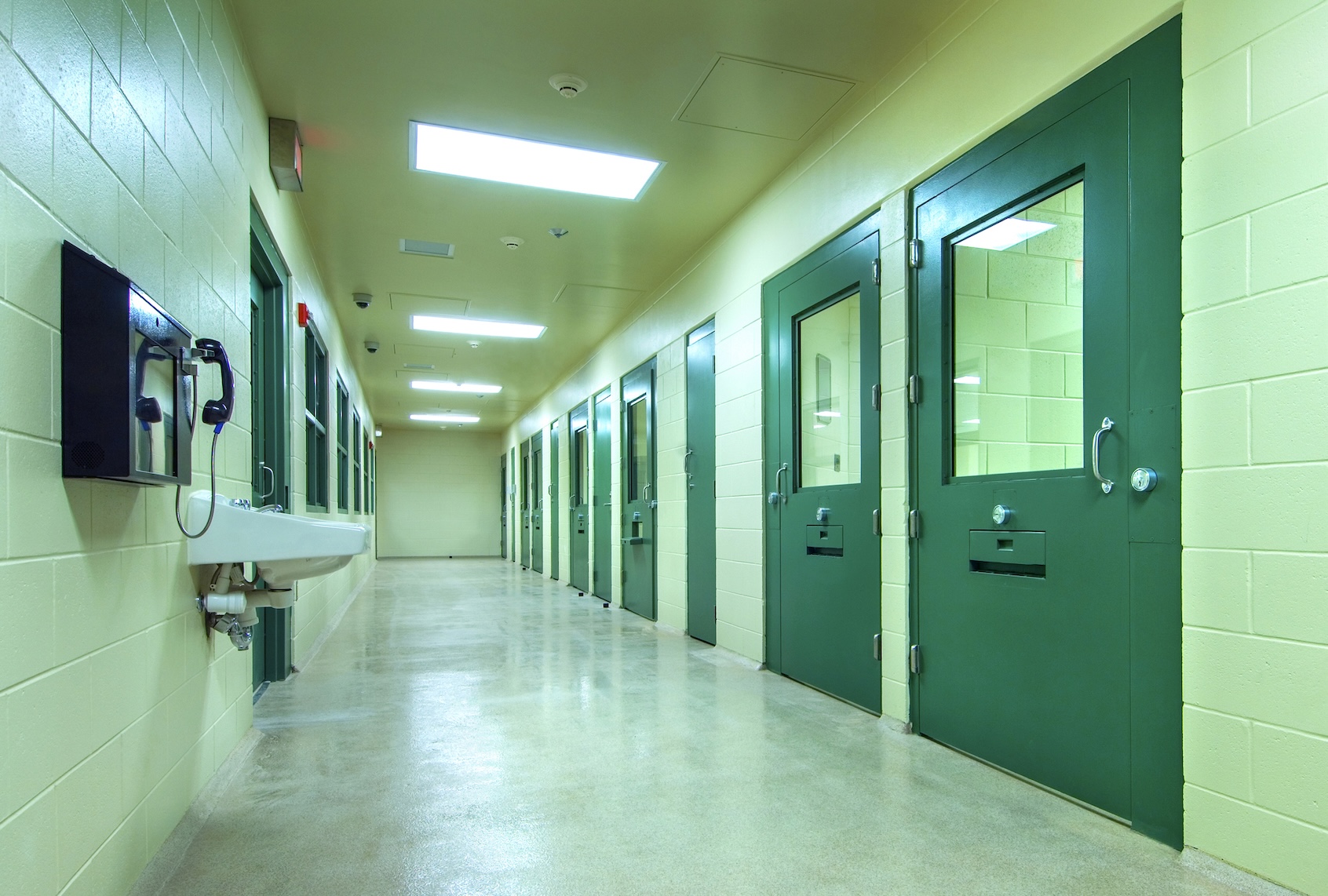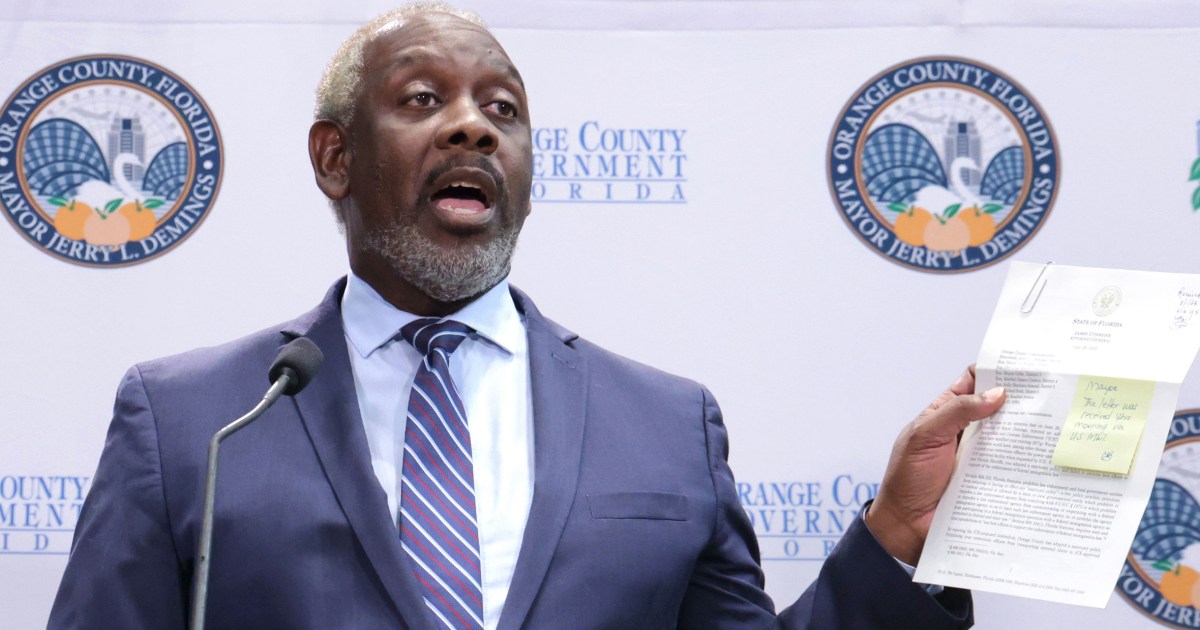Hundreds of immigrants with no criminal charges in the United States are being held at Alligator Alcatraz, a detention facility state and federal officials have characterized as a place where “vicious” and “deranged psychopaths” are sent before they get deported, records obtained by the Miami Herald/Tampa Bay Times show.
Mixed among the detainees accused and convicted of crimes are more than 250 people who are listed as having only immigration violations but no criminal convictions or pending charges in the United States. The data is based on a list of more than 700 people who are either being held under tents and in chain link cells at Florida’s pop-up detention center in the Everglades or appear slated for transfer there.
A third of the detainees have criminal convictions. Their charges range from attempted murder to illegal re-entry to traffic violations. Hundreds of others only have pending charges. The records do not disclose the nature of the alleged offenses, and reporters have not independently examined each individual’s case.
The information — subject to change as the population of the facility fluctuates — suggests that scores of migrants without criminal records have been targeted in the state and federal dragnet to catch and deport immigrants living illegally in Florida.
Nationally, nearly half of detainees in ICE custody as of late June were being held for immigration violations and did not have a criminal conviction or charge, according to data from Syracuse University. Polls have shown that American voters support the deportation of criminals but are less supportive of the arrest and detention of otherwise law-abiding undocumented immigrants. South Florida’s congressional representatives have called on the Trump administration to be more compassionate in its efforts to round up and deport immigrants with status issues.
“That place is supposedly for the worst criminals in the U.S.,” said Walter Jara, the nephew of a 56-year-old Nicaraguan man taken to the facility following a traffic stop in Palm Beach County. The list obtained by the Herald/Times states that his uncle, Denis Alcides Solis Morales, has immigration violations and makes no mention of convictions or pending criminal charges. Jara said his uncle arrived here legally in 2023 under a humanitarian parole program, and has a pending asylum case.
Reporters sent the list to officials at the Department of Homeland Security and U.S. Immigration and Customs Enforcement. In a statement, DHS Assistant Secretary Tricia McLaughlin said the absence of a criminal charge in the United States doesn’t mean migrants detained at the site have clean hands.
“Many of the individuals that are counted as ‘non-criminals’ are actually terrorists, human rights abusers, gangsters and more; they just don’t have a rap sheet in the U.S.,” McLaughlin told the Herald/Times. “Further, every single one of these individuals committed a crime when they came into this country illegally. It is not an accurate description to say they are ‘non-criminals.’”
McLaughlin said the Trump administration is “putting the American people first by removing illegal aliens who pose a threat to our communities” and said “70% of ICE arrests have been of criminal illegal aliens with convictions or pending charges.”
She added that the state of Florida oversees the facility, not ICE, an argument echoed in court by Thomas P. Giles, a top official involved in enforcement and removal operations.
“The ultimate decision of who to detain” at Alligator Alcatraz “belongs to Florida,” he wrote as part of the federal government’s response to a lawsuit challenging the detention facility on environmental grounds.
A spokesperson for ICE referred reporters to Florida’s Division of Emergency Management, which oversees the detention facility. The Florida agency did not respond to a request for comment.
The records offer a glimpse into who is being sent to Alligator Alcatraz. The network of trailers and tents, built on an airstrip off of U.S. Highway 41, has been operating for a little more than a week. It is already housing about 750 immigrant detainees, a figure that state officials shared with Democratic state Sen. Carlos Guillermo-Smith, one of several Florida lawmakers who toured the site on Saturday afternoon.
The records obtained by the Herald/Times show detainees are from roughly 40 countries around the world. Immigrants from Mexico, Guatemala and Cuba made up about half the list. Ages range from 18 to 73. One is listed as being from the United States. Reporters were unable to locate his family or attorney.
Lawmakers who visited the facility Saturday said they saw detainees wearing wristbands, which state officials explained were meant to classify the severity of their civil or criminal violations. The colors included yellow, orange and red — with yellow being less severe infractions and red meaning more severe offenses, said state Rep. Anna Eskamani, D-Orlando.
When the detention facility opened on July 1, President Donald Trump visited the site and said it would soon house “some of the most vicious people on the planet.” He and Gov. Ron DeSantis have said the detention center is creating more space to house undocumented immigrants who otherwise would have to be released due to a lack of beds.
The state has refused to make public a roster of detainees at Alligator Alcatraz, instead offering selective information about who is being detained there. On Friday, Florida Attorney General James Uthmeier’s office released the names of six men convicted of crimes to Fox News, and later to the Herald/Times upon request. The charges against the men — all included on the list obtained by the Herald/Times — ranged from murder to burglary.
“This group of murderers, rapists, and gang members are just a small sample of the deranged psychopaths that Florida is helping President Trump and his administration remove from our country,” Uthmeier’s spokesman, Jeremy Redfern, said in a statement.
One of those men is Jose Fortin, a 46-year-old from Honduras who was arrested in 2017 on attempted murder charges. Records show Fortin was deported to his home country in August 2019. A month later, he re-entered the country illegally. Border patrol agents picked him up in Texas.
Another man identified as a detainee by Uthmeier’s office, Luis Donaldo Corado, was convicted of burglary and petty theft after he was accused of being a “peeping tom” — watching a woman through her apartment window in Coral Gables. And Eddy Lopez Jemot, a 57-year-old Cuban man, was accused of killing a woman and setting her house on fire in Key Largo in 2017. The state dropped homicide charges against him in a plea deal this year and convicted him of arson.
But other detainees left off the attorney general’s list face lesser charges — such as traffic violations, according to attorneys and family members. An attorney told the Herald/Times her client was detained by federal immigration agents after a routine-check in at an ICE field office. Some are asylum seekers.
Solís Morales, the 56-year-old Nicaraguan, ended up in Alligator Alcatraz after he was unexpectedly detained on his way to a construction job in Palm Beach County on July 1, according to Jara, his nephew. He was a passenger in a Ford F-150 when the driver was pulled over by the Florida Highway Patrol for an unsecured load, Jara told the Herald/Times on Saturday.
Solís Morales arrived in the United States from Nicaragua in 2023 under humanitarian parole and has a pending asylum case, Jara said.
Miami immigration attorney Regina de Moraes said she’s representing a 37-year-old Brazilian man being held at Alligator Alcatraz who entered the United States lawfully on a tourist visa in 2022 and then applied for asylum, which is pending.
She said the man, who has a five-year work permit and owns a solar panel business in the Orlando area, was arrested on a DUI charge in 2024. While he was attending a probation hearing on June 3, he was detained by the Orange County Sheriff’s office, which is participating in a federal immigration program known as 287(g). He was transferred from there to Alligator Alcatraz on Thursday, according to information provided to her by the man’s sister.
De Moraes, a seasoned immigration lawyer, said she doesn’t understand why the Brazilian man was transferred to the state-operated detention facility in the Everglades. She asked the Herald/Times not to identify her client.
“He’s not subject to mandatory detention and he’s not subject to removal because he has a pending asylum application,” de Moraes told the Herald/Times. “He has one DUI and he’s not a threat to others. This is ridiculous. This is a waste of time and money. … He’s not the kind of person they should be picking up.”
“They should be picking up people with sexual battery or armed robbery records,” de Moraes said.







